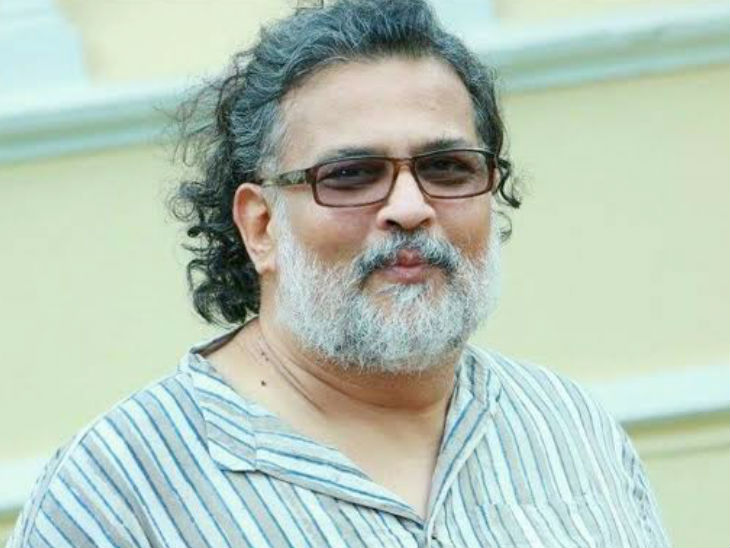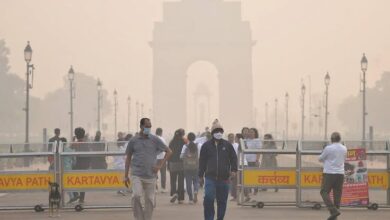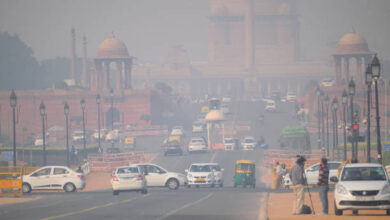Gandhi Murder : Murdering an Ideology
They worship Nathuram Vinayak Godse, Bapu's murderer.

Gandhi Murder : In the immediate aftermath of Bapu’s murder on 30th January 1948, a campaign of lies was launched to justify the murder. This campaign has been very successfully carried out by Hindu extremist organisations RSS and Hindu Mahasabha and patronised by RSS’s political branch the BJP. Today it stops short of being officially patronised, since the ideology which was responsible for Bapu’s murder, BJP as a proxy for RSS now rules India. Of course since officially Bapu cannot be denied, an insincere pretence of reverence is carried on, but it is insincere and an obvious charade. Their hero is Bapu’s murderer. They worship Pandit, as they eulogise him, Nathuram Vinayak Godse, Bapu’s murderer.
A campaign of lies
I began by saying that in the immediate aftermath of Bapu’s murder a campaign of lies was very systematically launched and it has succeeded in its objective spectacularly. In the absence of the lies being countered equally loudly and frequently, lies and twisted half truths have gained credibility and a few generations of Indians now believe that Nathuram Godse did the nation a great service by doing away with one who meant to do immense harm to the nation.
Bapu’s murderers have ensured that India is turned into the Hindurashtra of their dreams. Simultaneously with the campaign to justify Bapu’s murder they have campaigned to legitimise the idea of a theocratic Hindurashtra. The secular, classless, casteless India of Bapu’s dream is now a nightmare of hate and prejudice.
हिंदी में पढ़ें
Who wrote the court statement
In his court testimony Nathuram Godse read out a statement where he in very flowery and emotionally charged manner spelt out how Bapu’s actions had forced him to finally decide to murder him to save the nation. Till then Nathuram was not known to have mastery over such language he was known for abusive, inflammatory and threatening writing.
But his statement was very expertly written. the language was masterly, charged with passion and emotion, written to appeal to the hearts of listeners, and that’s what it did. Justice Khosla, one of the presiding judges who heard the appeal of those convicted in the Gandhi Murder Case in the Punjab High Court, while writing his memories mentions, ‘When Nathuram finished his statement in court, not a single pair of eyes present in court was dry. If I had converted the people present in court that day into a jury, they would have delivered an unanimous verdict of ‘Not Guilty!”
Nathuram was not known to have mastered such language. But in the Red Fort trail there was a co-accused, who had mastery over such emotionally charged language. V. D. Savarkar, the doyen of the Hindu Mahasabha and mentor and patron of Nathuram Godse, Narayan Apte and Vishnu Karkare three of the chief accused, who were convicted in the Gandhi Murder case. Savarkar was let off because his defence was able to sufficiently raise doubts about the evidence proving his guilt.
The Guru knew that the spotlight would be on Nathuram and he would not be denied his day in court and on that day he would have the world’s eyes and ears and so the master and his pupil utilised their time in prison during the trial, to craft a masterful statement that would be emotionally charged and would cleverly convert half truths into facts and make lies believable. Savarkar was the inspiration behind Bapu’s murder and was involved in its planning. This was later proved in the investigations of the Justice Kapur Commission of inquiry constituted in the late 60s to look into the allegations of the existance of a large, country wide conspiracy that resulted in Bapu’s murder and that there was knowledge about the existence of such a conspiracy.
The lies propagated by Nathuram and then popularised through right wing propaganda to justify Bapu’s murder alleges that, Nathuram was forced to murder Bapu because: ‘Gandhi was responsible for the Partition of India’, ‘Gandhi indulged in appeasement of Muslims’, ‘ Gandhi was anti Hindu’, ‘His concern was for Muslims, he was apathetic towards the plight of Hindus’, ‘He forced Government of India to gift Pakistan Rs. 55 Crores’, ‘If he was allowed to live he would break the nation into many fragments and gift it all away to Pakistan’, ‘He would ensure that Hindus were disenfranchised in their own motherland’. This according to Nathuram was why he was forced to murder Bapu, to save Bharatmata.
India’s Partition and Gandhi
Explaining the fallacy of each of the accusations would be too long for this article but in short, Bapu only accepted the Partition Plan as a fate accompli. When he saw that everybody but him wanted freedom at whatever cost and were not willing to fight further to avoid partition, he gave in. Mountbatten first convinced Sardar Patel to accept the Partition Plan, then he convinced Pandit Nehru to agree to the Partition Plan since the Sardar had accepted, finally he confronted Bapu with the fact that both his most trusted lieutenants had accepted the plan so he should not be obstinate and oppose it. He was made aware that he had been isolated and had no option but to tag along. Bapu did not cause the Partition, he reluctantly and with a broken heart accepted it.
Bapu did not indulge in the appeasement of Muslims. As he familiarised himself about the social realities of India, on his return from South Africa. He realised the reason for India’s slavery. It was enslaved because it was divided, its people were divided on the lines of religion, caste and class. As he took the reins of the freedom movement in his hands, he realised that he would have to forge unity between the two major communities, Hindus and Muslims and so he decided to align with the Muslims in their fight to get the Caliphate reinstated. But this was not the first time a leader had pandered to Muslim sensitivities. Before Bapu, Muslims were offered representation disproportionately more than their population in local bodies, this was offered and ratified in the Lucknow Pact much before the emergence of Bapu on the political scene. It was done with the objective of bringing Muslims into the main stream and to encourage them to participate in the freedom movement. The Lucknow Pact was negotiated and agreed upon with the Muslim leadership not by Gandhi but by the leader of the Congress Hawks, Lok Manya Bal Gangadhar Tilak. So if anyone should have been accused of starting the process of Muslim appeasement it should have been Lok Manya Tilak, not Bapu.
Bapu was neither pro Muslims nor pro Hindus
Bapu was neither pro Muslims nor pro Hindus, his concern was for humans, in riots he did not go to save Hindus or Muslims, he went into stop the violence and save and care for human beings. When he stopped in Calcutta, on the eve of freedom, he was on his way to Noakhali, in what was to become East Pakistan, because he was concerned about the well being of Hindus remaining there. He had promised them his protection.
Suhrawardy, the ‘Butcher of Calcutta’, during the League’s Direct Action Day riots in August 1946, was concerned about the safety of the Muslims remaining in Calcutta, so he approached Bapu and requested him to stay back and save the Muslims. Bapu knew that Suhrawardy was the orchestrator of violence against the Hindus in East Pakistan so he made him an offer. If Suhrawardy promised him that he would take responsibility for the safety of Hindus, in what was to become East Pakistan, and promised that not one of them would be harmed, then Bapu would ensure the safety of Muslims in Calcutta. The warning was that even if a single Hindu was harmed in Noakhali and Tippera or anywhere else in East Pakistan, Bapu would go on an unconditional fast unto death, which meant he would voluntarily embrace death. Bapu stayed back in Calcutta not only to save Muslims in Calcutta but he also ensured the safety of Hindus in East Pakistan.
If today there is a tiny population of Hindus in Bangladesh they are the descendants of those whose safety Bapu ensured. Yes the extreme Right Wing Hindus had a reason to be angry with Bapu. He denied them the opportunity to massacre Muslims in Calcutta. After a breakout of violence, Bapu managed to bring peace to the east. That prompted Mountbatten to hail it as the miracle of Calcutta and Bapu as his ‘one man peace keeping force’. Bapu did not differentiate humans as Hindus or Muslims, he did not divide upper caste Hindus and Harijans, for him they were all human beings.
Bapu did not gift Pakistan 55 crores
Bapu did not gift Pakistan 55 crores. When Partition was accepted all the assets of the Raj had to be divided between the two new nations, fixed assets as well as cash. Everything was negotiated and divided according to agreed ratios. The joint kitty of cash held by the Raj also had to be divided, the British asked the interim governments of both nations to decide amongst themselves. Till the day of formation of Pakistan there was no agreement so on 13th August 1947 an ad-hock sum of Rs.20 crores was given to Pakistan so that it had funds to administer the new born nation. The negotiations carried on, now between two independent nations. Finally an agreement was reached and Pakistan’s share was agreed by both to be Rs.75/- crores, since 20 crores had already been paid, the balance amount to be paid was Rs.55/-.
This was agreed upon by a signed treaty, a bilateral treaty between two independent nations. This treaty was negotiated and signed by the four senior Cabinet Ministers of both Governments, not by Bapu. India was aware of the massive influx of refugees from both the Pakistans and the huge cost of rehabilitating them. Reports of Pakistan’s mischief in Kashmir had also started trickling in, this lead to a lot of anger and resentment against Pakistan in India. Pakistan triumphantly announced the signing of the treaty with India, this became an embarrassment for the Indian Government in the face of strident criticism from the Indian people. There was a move to scuttle the treaty. Voices within the Cabinet even suggested reneging on the agreement and not paying Pakistan at all, or till all issues between the two nations were resolved. This meant dishonouring an international bilateral treaty, India’s first. Or in plain terms breaking a solemn promise, its given word. This was not legally sustainable, nor ethically and morally correct. Mountbatten expressed his concerns to Bapu after having briefed him about the worsening conditions of law and order in and around Delhi and his worry that if fires of hate consumed Delhi, even God would not be able to save India.
That evening, on 12th January, in his post prayers speech Bapu expressed his displeasure with the Indian Governments decision to dishonour its pledge to pay Pakistan Rs. 55/- Crores and said agreeing to Partition was a sin and now by dishonouring their promise India would compound that sin. Then he expressed his anguish at the escalating violence and arson in the Capital. He announced that to stop the acts of hate and to expunge the poison from the heart of his people, he was going to commence a fast unto death from the next morning. The Government was overjoyed, they had found the scapegoat to absolve themselves of the blame of paying Pakistan and for financing their war against India.
Bapu was a victim of 55 crores
On the second day of Bapu’s fast, from around his bed in the Birla House, where he was fasting they declared that they were transferring the agreed amount of Rs. 55/- crores to Pakistan. Now the resentment and anger had found a victim. When Gopal Godse the younger brother of Nathuram Godse and co-convict in the Gandhi Murder, published a book based on his brother’s testimony in court, he titled it ‘Panchavan Koti Cha Bali’ ‘Victim of 55 Crores’; yes Bapu was a victim of 55 crores but he wasn’t guilty for it.
campaign to spread confusion about the murder itself
After successfully carrying out a campaign of lies justifying Bapu’s murder the extremists have now launched a campaign to spread confusion about the murder itself. These people who did not contribute to making contemporary Indian History have a penchant for rewriting and fictionalising history. Now they are attempting to do just that. So they have floated the idea of the fourth bullet, which according to them actually killed Bapu and of the presence of another invisible gunman who again according to them was the real killer, and the involvement of a very secret group of official British assassins who were assigned the task of murdering Bapu. The fantastic existence of a cloned twin of the Beretta Automatic with which Bapu was actually murdered, after surviving the three bullets pumped in to his chest by Nathuram Godse from point blanc range. Innuendoes and cooked up fantasies, nothing substantiated. The plea filed in the Supreme Court to order a reinvestigation into the Gandhi murder is not a pursuit of truth. Its an insidious plot by the Right Wing to spread lies about Bapu’s murder, to confuse the people and then taking advantage of the confusion and mistrust, foist a fictionalised, convenient to their objectives, a fabricated version of Bapu’s murder.
Anarchy and chaos
India is today collapsing into anarchy and chaos, it is orchestrated and a part of a grand design to destabilise the nation and to then install a new order taking advantage of the chaos and anarchy. The Kapur Commission unearthed evidence of such a conspiracy in place at the time of Bapu’s murder, at that time, Bapu’s murder shocked the nation and galvanised the Government into taking strict measures to thwart the plans of the right wing fanatics. Bapu’s murder saved the fledgling nation that he had helped free. Today, alas we do not have Bapu to save us. #Gandhi_Lives





